A month later Jen got a job in Manhattan and left Cleveland. I would go to the city – to see my brother, but really wanting to see Jen. At every visit my heart would scream at my brain, “tell her!!” but I couldn’t work up the courage to tell Jen that I couldn’t live without her. My heart finally prevailed and, like a schoolboy, I told Jen “I have a crush on you.” To the relief of my pounding heart, Jen’s beautiful eyes lit up and she said “Me too!”
Six months later I packed up my belongings and flew to New York with an engagement ring burning a hole in my pocket. That night, at our favorite Italian restaurant, I got down on my knee and asked Jen to marry me. Less than a year later we were married in Central Park, surrounded by our family and friends. Later that night, we danced our first dance as husband and wife, serenaded by my dad and his accordion – ♫ “I’m in the mood for love…”♫
Five months later Jen was diagnosed with breast cancer. I remember the exact moment… Jen’s voice, and the numb feeling that enveloped me. That feeling has never left. I’ll also never forget how we looked into each other’s eyes and held each other’s hands. “We are together, we’ll be ok.”
With each challenge we grew closer. Words became less important. One night Jen had just been admitted to the hospital, her pain was out of control. She grabbed my arm, her eyes watering, “You have to look in my eyes, that’s the only way I can handle this pain.” We loved each other with every bit of our souls.
Jen taught me to love, to listen, to give and to believe in others and myself. I’ve never been as happy as I was during this time.
Throughout our battle we were fortunate to have a strong support group but we still struggled to get people to understand our day-to-day life and the difficulties we faced. Jen was in chronic pain from the side effects of nearly 4 years of treatment and medications. At 39, Jen began to use a walker and was exhausted from being constantly aware of every bump and bruise. Hospital stays of 10-plus days were not uncommon. Frequent doctor visits led to battles with insurance companies. Fear, anxiety and worries were constant.
Sadly, most people do not want to hear these realities and at certain points we felt our support fading away. Other cancer survivors share this loss. People assume that treatment makes you better, that things become OK, that life goes back to “normal.” However, there is no normal in cancer-land. Cancer survivors have to define a new sense of normal, often daily. And how can others understand what we had to live with everyday?
My photographs show this daily life. They humanize the face of cancer, on the face of my wife. They show the challenge, difficulty, fear, sadness and loneliness that we faced, that Jennifer faced, as she battled this disease. Most important of all, they show our Love. These photographs do not define us, but they are us.
Cancer is in the news daily, and maybe, through these photographs, the next time a cancer patient is asked how he or she is doing, along with listening, the answer will be met with more knowledge, empathy, deeper understanding, sincere caring and heartfelt concern.
“Love every morsel of the people in your life.” – Jennifer Merendino
These photos speak volumes. Brace yourself.

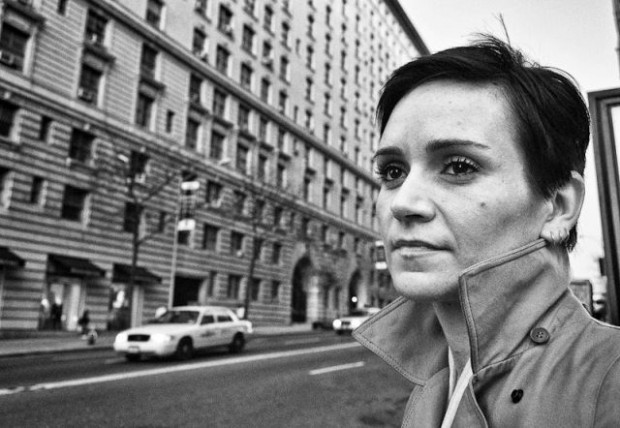
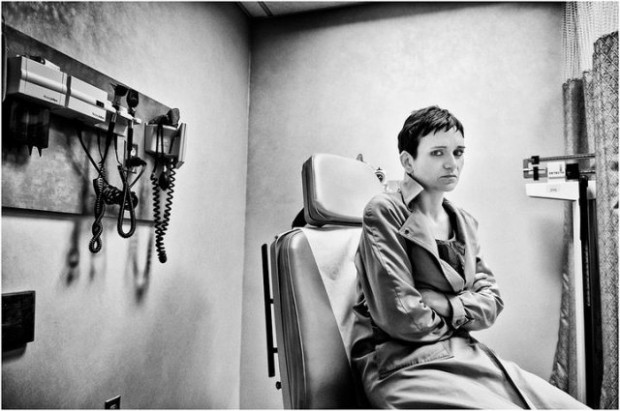
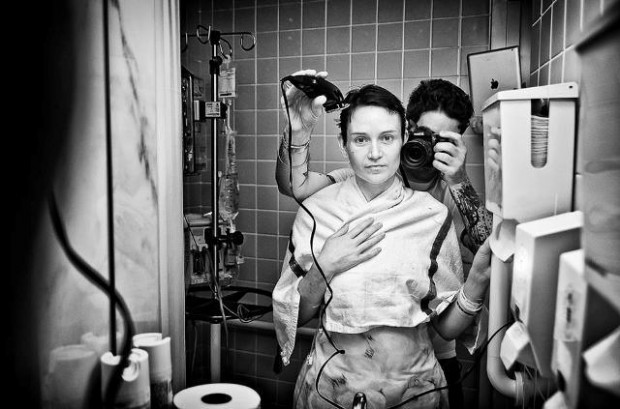
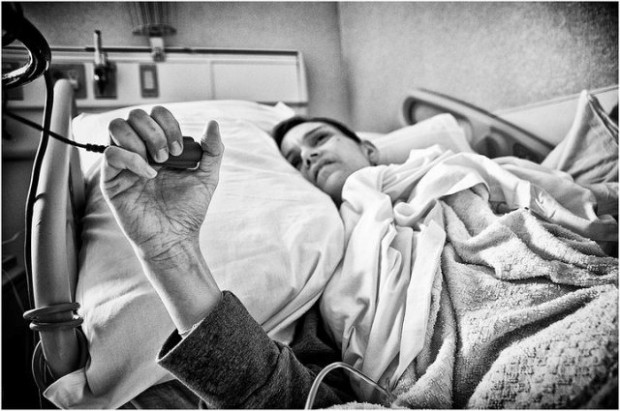
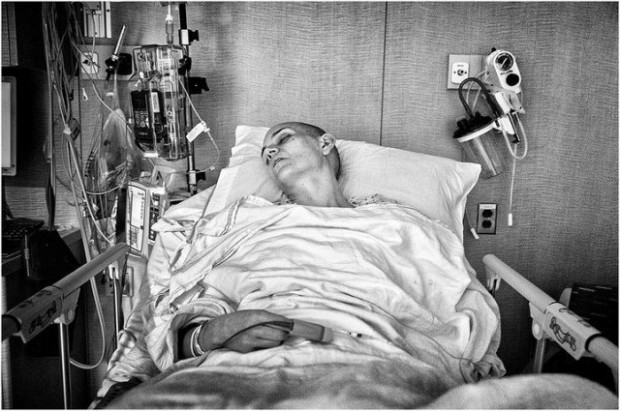
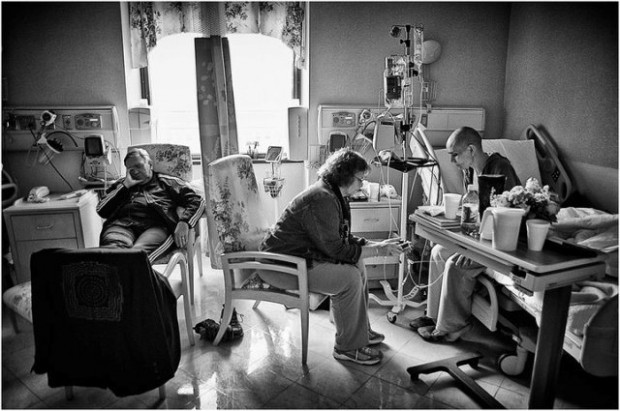
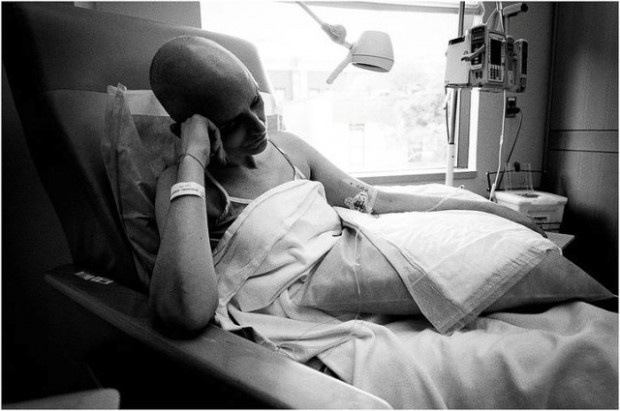
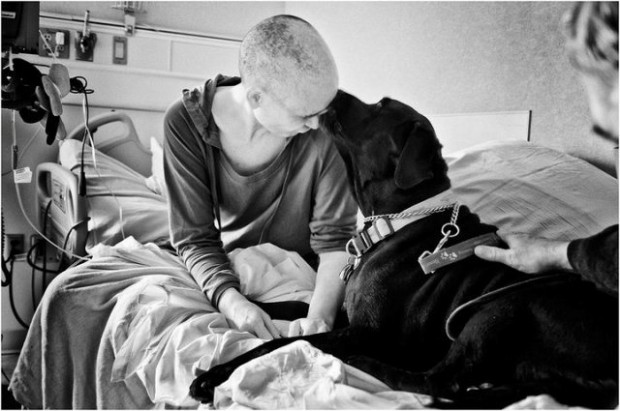
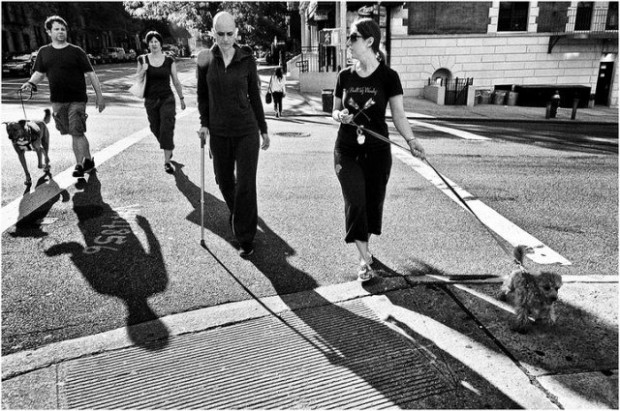
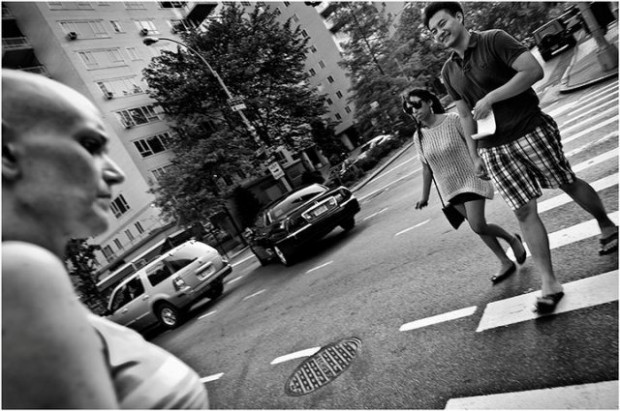
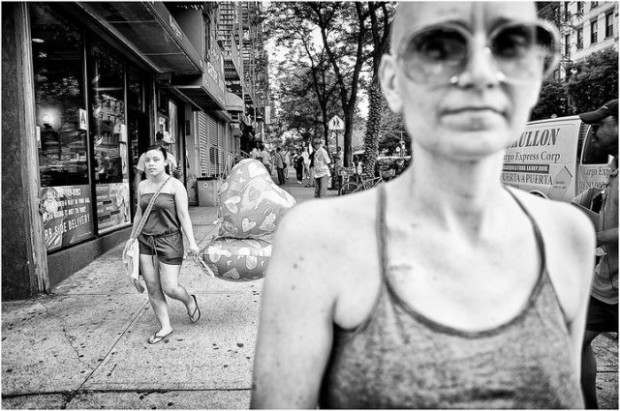
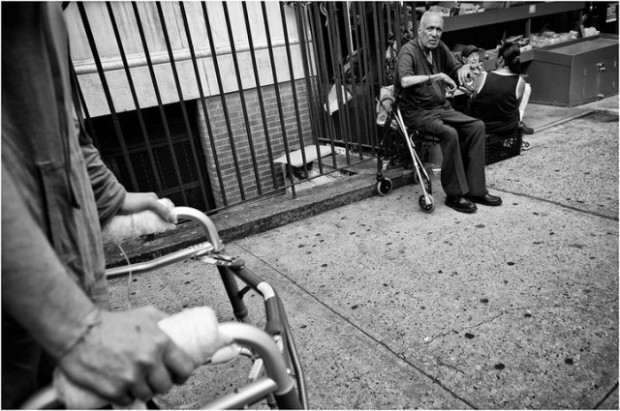
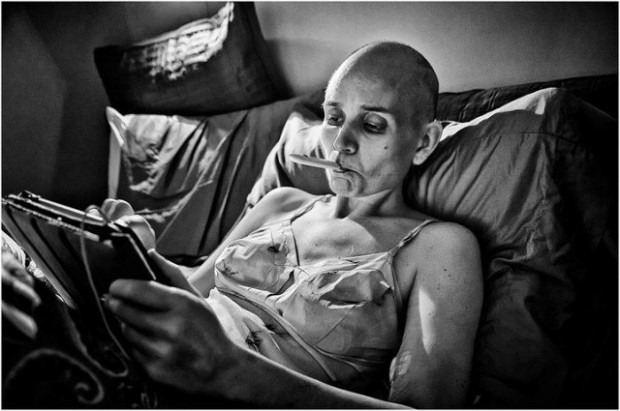
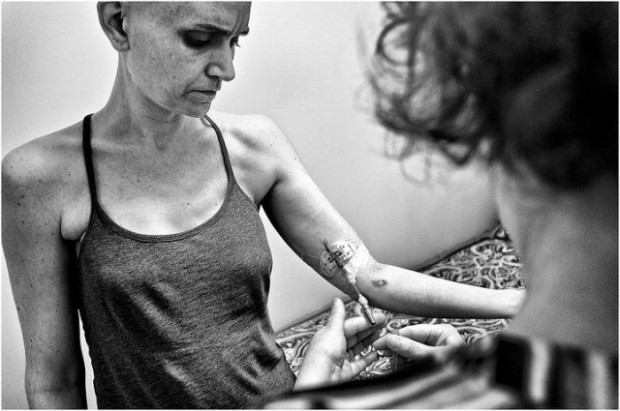
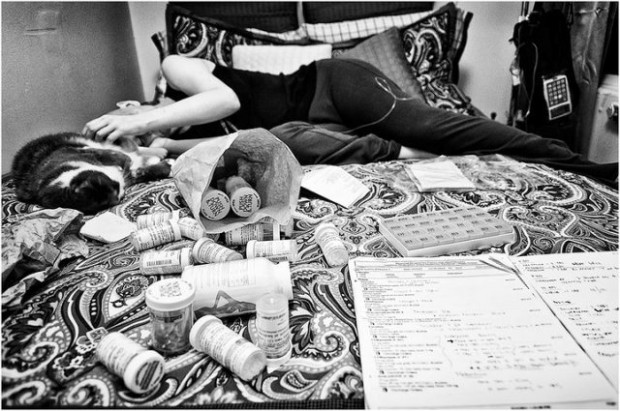
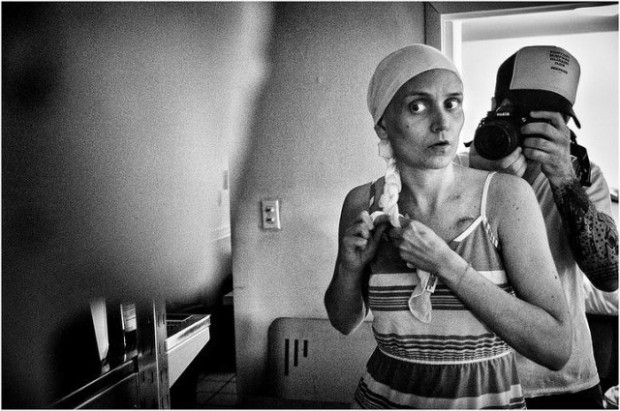
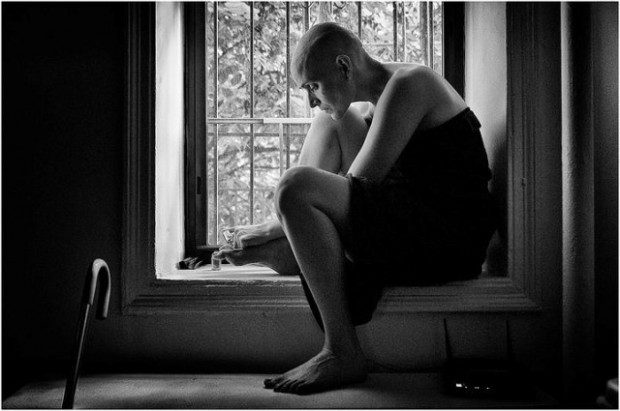
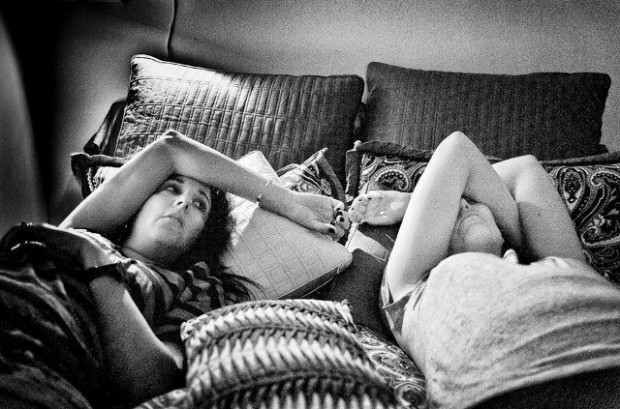

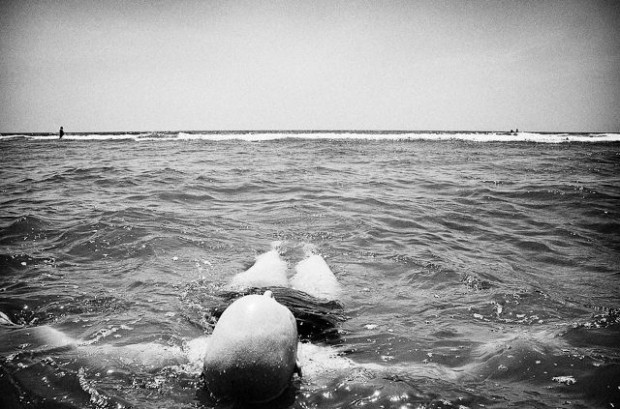
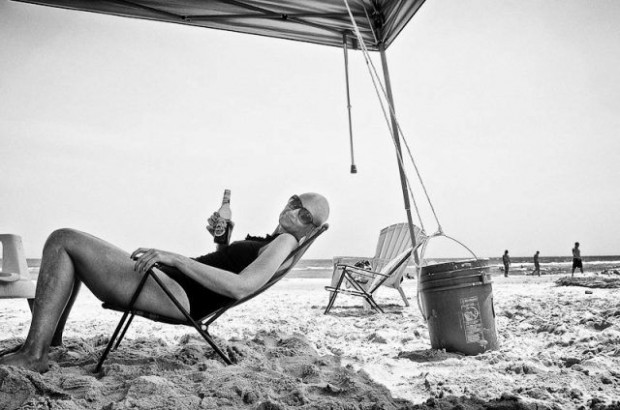
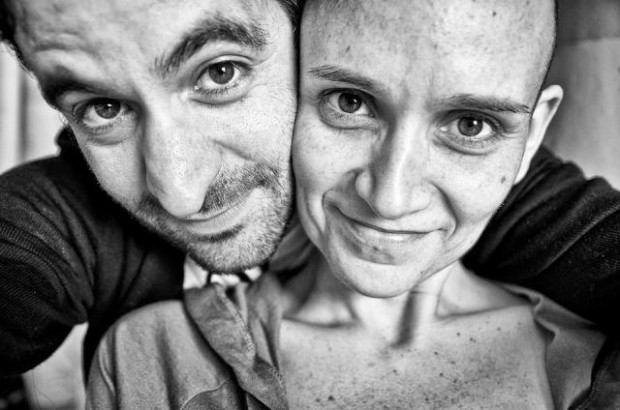
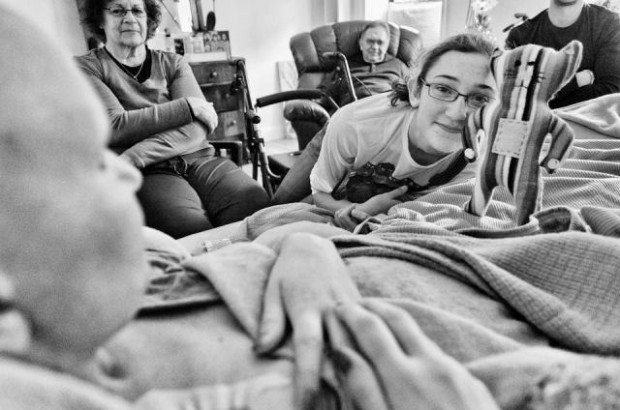
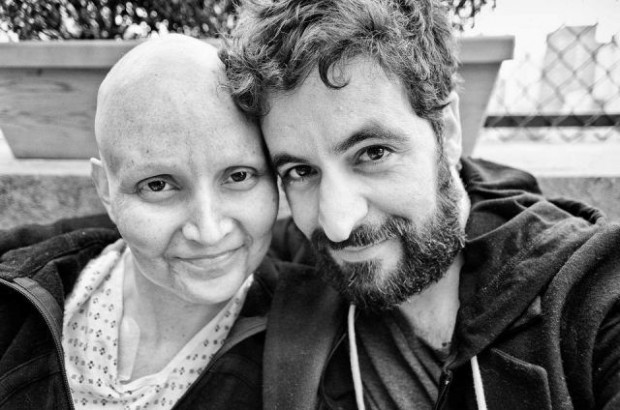
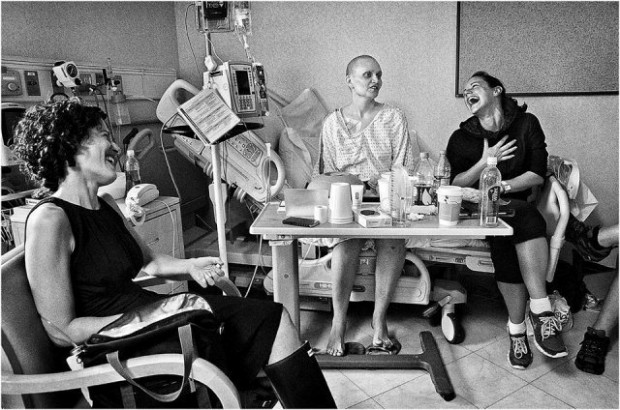
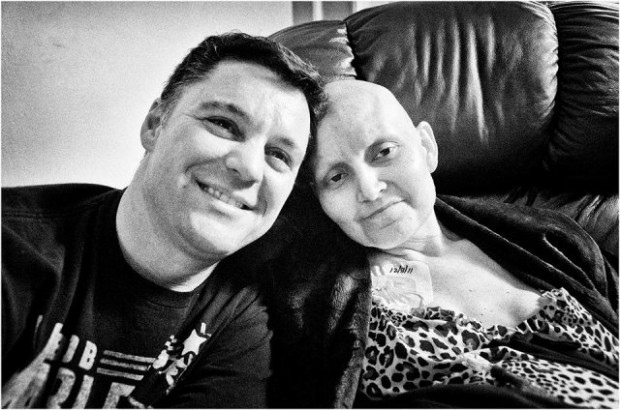
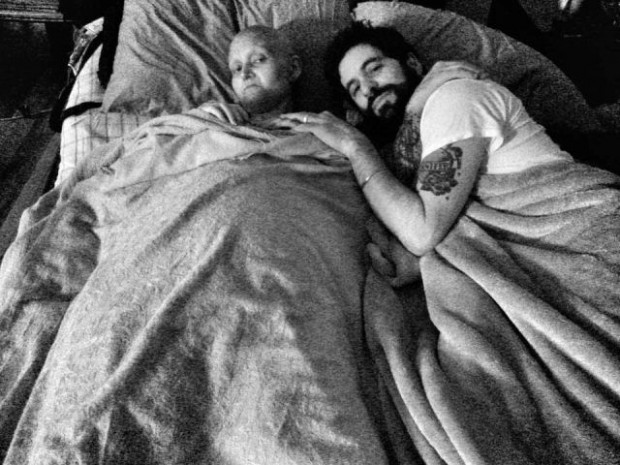
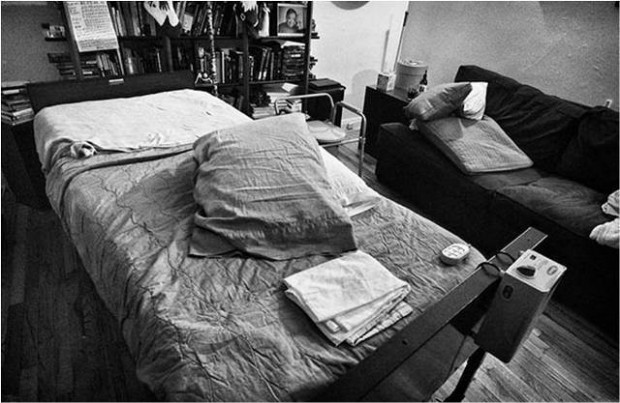
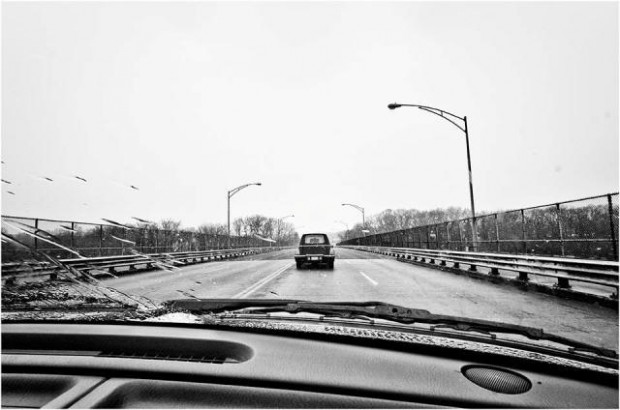
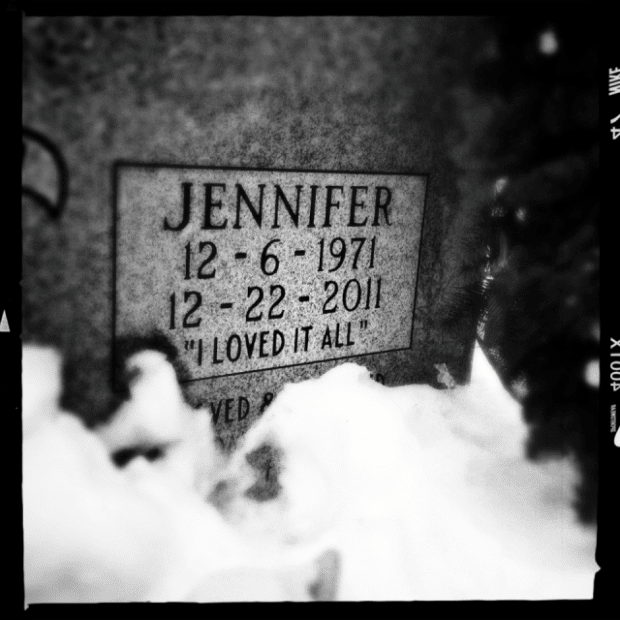
All photos by Angelo Merendino.
Angelo has started an organization to help women with their financial struggles during their trials with breast cancer.
More about that at Angelo’s blog: http://mywifesfightwithbreastcancer.com
My thoughts:
First, Angelo has my highest respect and deepest sympathy. His decision to stay with his new wife “in sickness and in health” is nothing short of heroic. This man, like so many spouses of patients, is the epitome of love in action. I can’t imagine what he went through watching the love of his life slowly fade away… My heart breaks for him.
Second, I’ve gained some notoriety for speaking out against about “cancer awareness and research” charities like Susan G Komen, but any cancer charity that gives money directly to patients is one I support, assuming they are being good stewards of the funds they raise. Putting money directly into the hands of cancer patients and their families does real, measurable good. I am so glad to see that Angelo has a heart for this.
Third, Angelo’s photo essay has been reposted on many sites, but none have addressed the elephant in the room…
Cancer did not destroy this beautiful woman.
Conventional cancer treatment did.
Now let me be clear. I’m not implying that cancer does not kill people. It does. But the treatment is often worse than the disease, and does more harm than good.
Jennifer’s story mirrors many who are diagnosed with cancer. Patients are typically rushed into treatment with no idea how destructive and ineffective it is. And how much suffering is involved. They are not told that the body can heal, only that they have to “battle and fight cancer”, a warfare narrative created to help people accept that they must endure brutal, conventional cut-poison-burn treatments. And like warfare, it often ends tragically.
Patients are also not told that chemotherapy only contributes 2.1% toward 5-year survival on average. In Jennifer’s case, the absolute survival benefit at 5 years for chemotherapy in women under 50 with breast cancer was shown to be 6.8% for node-positive and 3% for node-negative women.
They are not told that chemotherapy can backfire and boost cancer growth.
They are not told whether their treatment is meant to be curative or just pallative, and often have unrealistic expectations that they can beat the odds and be cured, when the doctors know they can’t. Patients are unknowingly hoping for a “medical miracle”.
Patients are told that chemotherapy will “extend their life”, which is why they agree to do it,
but they don’t know that the side effects of chemotherapy are often downplayed and that researchers spin their results.
They don’t know that oncologists are some of the highest-paid doctors because more than half of their income comes from selling and administering chemotherapy drugs. They actually profit off the drugs that they insist you take.
They don’t know that the cancer industry has made very little progress in lowering the death rate or increasing the survival rate for most cancers. The cancer death rate has only improved 5% on average since 1950. And 5-year survival has only improved 5% on average since 1970. The exceptions are fairly uncommon cancers: some leukemias, some lymphomas, and testicular cancer.
I hear and read tragic stories just like Jennifer’s every day. My inbox is full of them.
As a result of conventional cancer treatments, someone very close to me is now an invalid with dementia requiring 24-hour care. She is confined to a wheelchair, unable to feed, clothe, or bathe herself, and doesn’t communicate most of the time.
I’ve thought about posting a collection of cautionary tales for some time, but I wasn’t sure how.
I think this post is an appropriate forum for that and I’m looking forward to reading your thoughts and comments.
If you would like to share your experience watching a loved one suffer and die as a result of cancer treatment please feel free to do so. I don’t like dwelling on negative things, but we can learn from the experiences of others, whether good or bad, and people need to know the truth about conventional cancer treatments, and that they have other options. That’s why this site exists, to empower you with life-saving information that can help you heal cancer and/or avoid cancer in the first place. If you have lost a loved one to cancer, that story is valuable and important. It could make all the difference for someone who is at a fork in the road. Please take this opportunity to share it with those who might find themselves here.
No comments:
Post a Comment